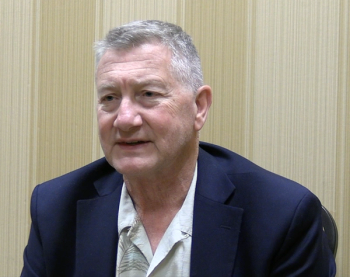
Novel Flexible SERS Substrate Enables Highly Sensitive Detection of Thiram Residue in Apple Juice
Researchers have created a flexible SERS substrate based on Au nanostars and PDMS, enabling highly sensitive detection of thiram residue in apple juice. The innovative substrate offers a reliable method for ensuring food safety by accurately identifying pesticide contaminants.
A research team at Southeast University have developed a novel fabrication method for a flexible surface-enhanced Raman scattering (SERS) substrate, capable of selectively and sensitively detecting thiram residue in fruits and juices. The team’s research was published in Spectrochimica Acta Part A: Molecular and Biomolecular Spectroscopy (1).
The team utilized gold nanostars (Au NSs) with a multi-branching structure, which were self-assembled on aminated polydimethylsiloxane (PDMS) slides through electrostatic interaction. The SERS method employed the characteristic peak intensity of thiram at 1371 cm−1 to differentiate it from other pesticide residues. A linear relationship between the peak intensity at 1371 cm−1 and thiram concentration was established within the range of 0.01 ppm to 100 ppm, with a limit of detection (LOD) of 0.0048 ppm.
To validate the practicality of the SERS substrate, the researchers directly employed it to detect thiram in apple juice. The standard addition method was utilized, yielding recoveries ranging from 97.05% to 106.00%, with relative standard deviations (RSD) between 3.26% and 9.35%. The SERS substrate exhibited remarkable sensitivity, stability, and selectivity for thiram detection in food samples, making it a potential common method for pesticide detection in various food products.
The development of this flexible SERS substrate offers significant advantages in the field of food safety. The detection of pesticide residues in fruits and juices is of utmost importance, as consumers increasingly demand safe and contaminant-free food. Thiram, a widely used fungicide, has been under scrutiny due to its potential health risks. Therefore, having a reliable and sensitive method for thiram detection is crucial for ensuring the safety and quality of apple juice and other fruit-based products.
The research conducted by Anran Liu and the team at Southeast University provides a promising solution to address the challenges associated with thiram detection in food samples. The flexible SERS substrate, based on Au nanostars and PDMS, exhibits excellent performance characteristics, enabling rapid and accurate analysis. This innovative approach holds great potential for implementation in the food industry and regulatory bodies to ensure the safety and integrity of our food supply.
Further research and development in this area may lead to advancements in SERS technology, allowing for the detection of other pesticide residues and contaminants. By continually improving detection methods, scientists and researchers can contribute to a safer and healthier food system for consumers worldwide.
Reference
(1) Zhang, Y.; Wang, Y.; Liu, A.; Liu, S.Fabrication of flexible SERS substrate based on Au nanostars and PDMS for sensitive detection of Thiram residue in apple juice. Spectrochimica Acta Part A: Mol. Biomol. Spectrosc. 2023, 297, 122721. DOI:
Newsletter
Get essential updates on the latest spectroscopy technologies, regulatory standards, and best practices—subscribe today to Spectroscopy.




